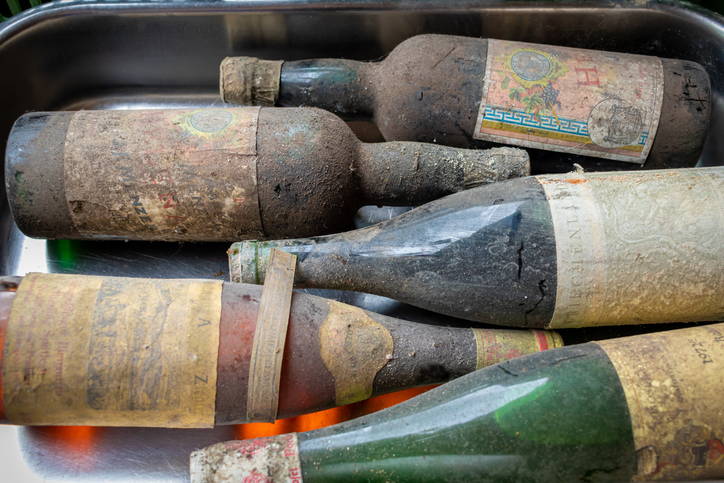The wine auction market affords an opportunity for the hotelier to add bottles to the property’s cellar that may not be available through conventional means, namely continual repurchasing orders through wine merchants. A restaurant can use auctions to fill in vintage years missing from a particular chateau or adding some ‘spice’ to a wine list with interesting, cult or hard-to-find bottles.
We sought out an expert in this area, Stephen Ranger, who has ownership positions in two leading Canadian auction houses. Stephen is considered the country’s most prominent Fine Wine auctioneer, lending his expertise to numerous charitable and cultural organizations each year.
Is an auction a good place for a hotel restaurant to purchase wine?
For hotels that want to build world-class wine lists without having to hold inventories for literally years or decades, the auction market has become increasingly attractive. While the dictum of caveat emptor, or buyer beware, still holds true, auction houses base their reputation on the quality of products delivered to their clients. The best auction houses engage in extensive due diligence to ensure wines brought to auction are of impeccable provenance and have been stored in suitable conditions to ensure optimum aging and condition. Buying at auction requires a proactive engagement with the market that many smaller owners may not have time for. Many auction houses engage in-house concierges to assist both trade and private clients make good buying decisions for their customers. Likewise, there are a growing number of knowledgeable, independent wine consultants who provide expert advice to prospective purchasers.
What is the best strategy for a hotel to take in a wine auction purchase?
Most wine auctions these days take place online or as a live-online hybrid. For most professionals, I have found the best strategy is to set your maximum price and engage in absentee bidding. That is, have the auction house or bidding platform bid on your behalf. This way, a buyer is less likely to succumb to ‘auction fever’ where the pursuit outweighs what would be a rational market value price for the wine of interest. All reputable auction houses offer this service at no charge to potential buyers.
Are there ever any bargains?
The great thing about wine auctions is that, if you are patient and diligent in your research, there are always bargains. A great strategy is to look beyond the big names and brands and focus on less heralded regions that are producing incredible quality wines. The wines of Spain, Australia and South America, as well as Oregon and Washington State, all fall into this category because they have historically underperformed at auction relative to their quality.
What are the typical charges above the ‘hammer’ price?
Because of the intense competition among the major auction houses, sellers are often charged little or no commissions, so auction houses rely on a ‘buyer’s premium’ for their revenue. This can range from 18-25% depending on the house. Shipping can range from $20 to $100 per case depending on the value of the wine, where it is coming from and where it is being shipped to. Always ask in advance what these charges would be. Depending on the jurisdiction involved, there may also be sales taxes applied. It is incumbent on the buyer to be aware of what regulations apply in their country, state or province. A good auction house will have this information at their fingertips and should never hesitate to offer relevant advice.
 Who are the top auction houses in the wine business?
Who are the top auction houses in the wine business?
American-based auction houses continue to lead the market, although many have expanded into Hong Kong which serves as a clearinghouse for the booming Asian market. Top auction houses include Acker, Zachys, Hart Davis Hart and Iron Gate (Canada) as well as, of course, the more traditional international players of Sotheby’s and Christie’s.
What’s up with expensive wines?
The fine wine market has been on a roll for the last ten years and even more so over the course of the pandemic. The Wine Market Journal’s (WMJ150) index that functions much like major stock indices recorded 60% growth over the period of Q2 2020 to Q1 2022. Likewise, the London-based Cult Wine main investment index posted a net return to investors of 16% for 2021. Traditionally, Fine Wine collectors have generally skewed older; now there is a new, more demographically diverse group of collectors entering the market for both pleasure and investment purposes. Driving this demand is unsurpassed interest in Grand and Premier Cru wines from Burgundy, produced in relatively tiny quantities compared to the more traditional wines of Bordeaux that form the foundation of the market.
Have these top end wine prices affected the middle tiers?
The stratospheric prices for top wines such as Domaine de la Romanée-Conti (single bottles of the excellent 2002 vintage routinely trade for on average $26,000) have resulted in interest in a range of other producers of fine burgundy such as Domaine Comte Georges de Vogüe and Domaine Armand Rousseau, which often trade in the mid-four figure range for good vintages. It has also impressed upon collectors that second, third and fourth growth wines from Bordeaux are a relative bargain, such as the excellent 2009 Château Cos d’Estournel from Saint-Estâphe which can be found on average to trade for about $300 per bottle.
We have heard that wines are counterfeited. Does this apply to all wines or only top products?
Again, it is important to deal only with reputable auction houses when purchasing fine wine. Yes, it is true that there are several counterfeit wines in the market and due diligence on the part of the auction house is key. Like in so many areas of the luxury goods sector, if something appears too good to be true, it likely is the case. Faked wines are still a relative rarity in the market, but unfortunately they are not strictly limited to just the super-high-end. There are a range of ‘red flags’ to watch for including tampered labels, capsules or corks. The most important thing is to know who you are dealing with and never be afraid to ask questions from auction house specialists. It is their job to ensure that the products they offer are of unimpeachable provenance and authenticity.
